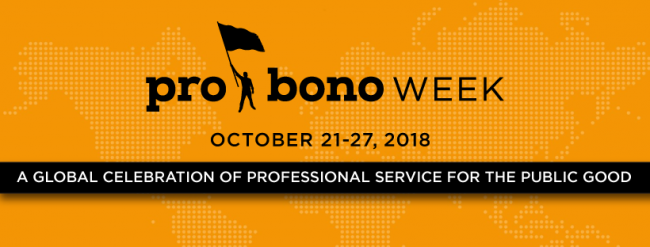This Family Foundation Wants to Inspire Philanthropists to Consider Impact Investing


The Russell Family Foundation has focused on protecting the environment and empowering communities in the Pacific Northwest and Puget Sound regions since its inception in 1999. Maximizing positive impact has always been a top priority for the Foundation’s work—following the ethos of its co-founders, George and Jane Russell, and their experience pioneering innovative strategies and industry-wide financial benchmarks through the global asset management firm Russell Investments.
In pursuit of its mission, the Foundation supported more than 675 individuals and community groups with around $130 million in grants, but its leadership team began to wonder if there was more they could do to drive measurable impact. In 2004, they began to explore impact investing and launched a $1 million pilot effort, which was followed by a series of additional mission-aligned investments.
Fast forward 10 years, and the Foundation challenged its team with a “tug of war” exercise to analyze the best investment strategies for financial gain compared to the best strategies with a return on mission. The result was a menu of approaches that increased mission-aligned investments in the Foundation’s portfolio from 7 percent to 75 percent in only four years.
This morning, the Foundation released a 41-page report detailing its impact investment journey, in an attempt to share lessons learned and inspire other philanthropic groups to activate their capital for impact. “Impact investing is a unique journey for any foundation, and I believe it is one that is necessary as stewards seeking a socially just and environmentally conscious world,” Richard Woo, CEO of the Russell Family Foundation (TRFF), said in a statement. “This report is an evolving story, metaphorically, with more chapters to come about emerging lessons and greater impact.”
TriplePundit took a look inside the report to find out what other foundations, philanthropists and purpose-driven investors can learn from the Foundation’s impressive move toward impact investing. Read on for the details.
An impact investing journey, recounted
The Foundation’s initial pilot explored socially-responsible vehicles such as environmental mutual funds, community bank deposits and program-related investments. “Back then, as now, we were drawn to the idea that a foundation may be better able to reach its philanthropic goals if it looked beyond traditional grantmaking strategies,” the report reads. “Investing in companies that conduct business in ways consistent with the Foundation’s mission seemed like a favorable option.”
The Foundation continued to make periodic impact investments over the following nine years, but the board wasn’t looking to make systemic changes to its investing strategy. That all changed when TRFF got involved in the DivestInvest movement. Launched on college campuses across the U.S. in 2010, DivestInvest calls on financial decision-makers to divest from fossil fuels and reinvest that capital into climate solutions. TRFF jumped in board in 2013 and began to divest its coal holdings.
A few months later, it came together with the Wallace Global Fund and foundations from across the country to formulate the DivestInvest Philanthropy Pledge. Seventeen foundations with $1.8 billion in assets under management pledged to divest from fossils within five years and invest at least 5 percent of their portfolio assets into climate solutions, such as renewable energy and energy efficiency. Since then, the number of foundations taking the pledge has grown nearly tenfold, with combined assets of close to $13 billion.
“It was a pivotal moment for TRFF because it set wheels in motion for a full divestment from fossil fuels and a focus on sustainable alternatives,” the report reads. “At the same time, it forced us to reconsider our entire portfolio management strategy.” The resulting “tug of war” exercise challenged TRFF’s investment advisors to find the best of both worlds—investments that supported its social and environmental mission, while also generating solid financial returns.
The process illuminated opportunities to restructure the portfolio for greater impact over time through means such as divestment and integrating new investment managers that address environmental, social and governance (ESG) issues. “We confirmed our belief that we can utilize the entire portfolio to further our mission, rather than simply maximizing performance in order to bankroll grant-making,” the Foundation concluded in its report.
Best practices for foundations
As part of the report, TRFF outlined the nine processes it found most helpful when transitioning its portfolio to mission-aligned investments—which offer poignant lessons for other foundations and philanthropists.
1. Rethink your investment policy statement (IPS): Make sure your IPS is explicit when it comes to mission-related investing. In other words, merge your investment and impact goals within one document, TRFF suggests, and review it at least once a year to determine whether your objectives are still relevant. “Revisiting your IPS will also help you consider where new investment vehicles and strategies might be implemented in an ever-evolving landscape,” the report reads.
2. Choose between total portfolio activation or create a carve-out: Decide to either pursue impact investments in all asset classes across the portfolio or only in select portions.
3. Commit to shareholder engagement: Exercise your rights as a shareholder. “Take advantage of voting proxies and co-filing corporate resolutions on topics aligned with your mission,” such as environmental reporting, corporate governance and transparency, the Foundation suggests.
4. Examine your portfolio: Look into how your existing portfolio aligns with your mission. For TRFF, this meant a carbon audit with the scientific research group Trucost to ensure the Foundation wasn’t reinvesting in sectors outside fossil-based energy that were still carbon intensive. As You Sow’s Fossil Free Funds database may also be of help here.
5. Make incremental changes: Instead of rushing into things, embrace a phased approach. “First, develop a strategic divestment plan to eliminate holdings that are counter to the mission,” then move toward making new mission-aligned investments, TRFF advises.
6. Engage in peer-to-peer collaboration: Create a space for your staff and your investment advisors to learn from one another. “Greater dialogue will most likely lead to better decision-making and stronger mission alignment across your portfolio,” the Foundation wrote in its report.
7. Explore catalytic opportunities: TRFF established a new category within its portfolio to incubate its most mission-aligned investments. Its team and advisors then conduct due diligence to highlight catalytic opportunities within the portfolio. Likewise, think of how you can create a structure to identify high-impact investment opportunities.
8. Learn from the field: Reach out to experts and peer organizations that can guide you on your journey. TRFF suggests DivestInvest Philanthropy, Confluence Philanthropy, Croatan Institute and Mission Investors Exchange. “Sharing knowledge and perspectives regarding impact investing will provide valuable insights that may help fine-tune your strategy,” the report reads.
9. Find the right partners: “Working with our investment advisor, local partners and leaders in the field was critical,” TRFF says. Expertise gaps are bound to emerge—and forming relationships with specialists you trust can help to fill them.
The bottom line
In 2016, sustainable, responsible and impact investing in the United States was worth an estimated $8.72 trillion, or one-fifth of all investment under professional management, but the market is still maturing. As more impact investing products come on offer and performance measures are standardized, even more investors will be drawn to the space—facilitating more growth and more impact. "It’s a virtuous cycle we can all look forward to," TRFF wrote in its report. “In the meantime, however, private foundations that seek to initiate or expand impact investing strategies should reflect on how far they are willing to go to invest in their impact goals."
The Foundation’s own journey shows what’s possible when philanthropists take a strategic eye to the power of their capital and channel it into avenues that match their values while generating return to support their missions. “The Russell Family Foundation’s reported achievement of reaching almost 75 percent mission-aligned investments in a relatively short period is a great example of how applying a rigorous approach to investment due diligence can result in making the most of an organization’s financial and social impact,” Brad Harrison, managing director of the independent investment and wealth advisory firm Tiedemann Advisors, said in a statement. Will your foundation be next?
Image credit: Rawpixel via Unsplash
Why We Must Rethink the CSR and Sustainability Strategy Implementation Process


The efficient implementation of a corporate social responsibility (CSR) strategy has the potential worldwide to alter “business as usual,” transitioning humanity into embracing a more sustainable long-term view. The development of methodological approaches that can lead to seamless external reporting, is crucial because this is one tool that can help enact such changes. For decades, industries have produced—and humans have consumed—without any awareness of the future impact caused by the consumption of a service or product.
Corporate social responsibility is also critical in helping society move forward on challenges including ethics, human rights, modern slavery, consumer education, stakeholder engagement and diversity and inclusion. The unification of all these components is eventually what defines whether or not a company is “socially responsible.”
The topic has matured dramatically in recent decades. CSR has led to the development of indicators of success and appreciation for such rankings as the Dow Jones Sustainability Index, OSHAS and the ISO 26000. Furthermore, there are initiatives such as the United Nations Sustainable Development Goals (SDGs), which intends by 2030 to achieve significant changes in humanity that could not be accomplished without a commitment from the industrial sector. According to a study conducted by PwC in 2016, 64 percent of the CEOs surveyed agreed that the implementation of a socially responsible and sustainable strategy is a fundamental part of their business model.
Michael Porter and Mark Kramer, who are among the experts in this space, have noted a lack of regulatory framework as one of the leading causes of CSR becoming overly philanthropic and not solving or providing long-term solutions for environmental and societal needs that are not met by government or civil groups. Consequently, this represents costs for any company. As a result, they have observed two interesting trends.
The first is that the absence of a regulatory framework allows each corporation to define their practices as “socially responsible.” Consequently, this lack of structure allows the reporting of any "good deed" as being “socially responsible.” This broad spectrum has been the gap between initiatives and impact indicators that are reflected when a real contribution has been made.
The second is that when a CSR strategy is not well-managed, thought-out, or implemented, stakeholders start to focus on the ethical practices of the company. Furthermore, when expectations are set too high on a company’s stakeholder engagement, an event that comes across as an example of not meeting those expectations ends up being seen as the company ́s fault and failure.
Therefore, what can companies do to carry out an efficient implementation of their strategy? What would happen if the focus is changed and the process begins with self-assessment for reporting as the first step towards a more effective CSR strategy implementation?
Unfortunately, during my several years of experience in the area of CSR and sustainability, I have seen this positive trend of using a business model that focuses on sustainability and responsibility is at risk of being disconnected from an efficient in-house model for implementation of such a strategy. In many cases, in order to deploy and then execute on these initiatives, companies design strategies that are inconsistent with the reality and scope of their business, or they develop programs and processes that subsequently present difficulties when attempted to be implemented.
The process of designing and perfecting a sustainable strategy is only the first step. The real challenge is to bring such a strategy to life and implement and integrate it smoothly throughout the company ́s business model, incorporating it into the corporate culture and everyday activities.
If a company does not know what to report, it usually does not know what to implement. After all, as mentioned before, there is a lack of regulatory frameworks for CSR and sustainability; however, there are several standards and guidelines that determine what should be reported to ensure the sustainability of a company. Some examples are the GRI, IIRC, Ecovadis and CDP.
Rethinking this process could result in a feasible solution for companies that are trying to embark on a more effective sustainability plan. The first step of sustainability implementation should be a self-assessment exercise that determines the strengths and opportunities for improvement within the broad spectrum of CSR. This approach is especially significant for territories like South Florida, were several headquarters or regional offices for the Latin America region operate. When the strategy is designed in one location and implemented in another, it is imperative to design strategies from the needs and context of the main stakeholders to guarantee future success. Self-assessment provides the baseline, helps report on progress, measure return on investment and truly demonstrate that sustainability is something achievable in in the future, creating shared value for society.
CR Miami is one of the partners at this week's 3BL Forum: Brands Taking Stands – The Long View, at MGM National Harbor, just outside Washington, D.C. this week, October 23-25, 2018. Over three fast-paced and dynamic days, the conference will showcase corporate voices on bridging the divide between investor relations and corporate responsibility, the “why” and “how” behind corporate decision-making on corporate responsibility - and when to take a stand.
Image credit: Belen Benitez
Morality Play: Taking Stands in the Saudi Crisis


Last year’s initial Future Investment Initiative conference promoted by the government of Saudi Arabia for the global financial and media elite was nicknamed “Davos in the Desert,” a reference to the annual World Economic Forum conference that convenes in Switzerland. Over 3,500 CEOs, investors, bankers, media owners, and other select invitees attended the event in Riyadh, Saudi Arabia. They were attracted by the promise of a reformed Saudi culture, one intended to encourage foreign investment in the kingdom by Western entities, and to the possible prize of billions--even trillions--of dollars in potential investments to be made available.
This year’s version of the event might have to be re-branded as “Davos Deserted,” as a significant number of the same top executives, corporations and media companies are cancelling their RSVPs for a return visit. A “Who’s Who” in global business, media and influencers are staying home as questions persist about the apparent assassination of a dissident Saudi journalist in that country’s consulate in Istanbul, Turkey. As I write, dozens of leading executives, investors, medial moguls, corporations and featured keynote speakers have cited reputational concerns measured against possible egregious human rights violations as the reason.
Among the many pullouts are three of the biggest names in global finance: Jamie Dimon of JPMorgan Chase, Stephen Schwarzman of Blackstone and Larry Fink of BlackRock (whose letter in January of this year calling on companies in which his company invested to “serve a social purpose” made explicit the connection between values and the bottom line). Perhaps most notable was the withdrawal of Uber’s CEO Dara Khosrowshahi, as his company has a $3.5 billion investment from the Saudi sovereign wealth fund. What’s more, one of his board members is the head of that fund—which is sponsoring the conference.
As TriplePundit’s Leon Kaye noted, “We’ve been seeing brands taking stands on political and social issues, and now the same is starting to happen with economic and foreign policy.”
Expanding on that theme in a New York Times “Dealbook” column, “When Business Executives Become Reluctant Statesmen,” Andrew Ross Sorkin spells out, “…the curious change the world has seen under a businessman president: America’s moral compass being set by the C-suite, rather than the Oval Office.” (Sorkin—a featured speaker at the conference—has also withdrawn from participating.)
To date, it seems that the moral stance is winning out over possible Saudi financial opportunities as once again, business finds itself in opposition to the government response. The administration’s position has been to underline the bottom line by emphasizing the billions of dollars in business at stake, arguing that profits in potential US-Saudi arms deals outweigh moral concerns about human rights.
When I started reporting in 2015 on the issue of brands taking stands on social and political issues, I had no idea it would become an international phenomenon. There were early signs in open letters published by globally active companies such as Apple and Starbucks.
CEOs Tim Cook and Howard Schultz issued statements on gay rights and racism, respectively, in 2014. At the time, those positions seemed both in sync with the pioneering attitudes of their respective companies’ progressive cultures and outliers, in the sense that both had the wherewithal—from healthy finances to fanatic consumer support—to take such positions.
The practice exploded in 2015, when “bathroom” and “religious freedom” bills were proposed (and in some cases, passed) by legislatures in North Carolina, Indiana and Arkansas. In an unprecedented pushback, hundreds of companies--from multinational corporates to local businesses--protested with public statements, both individually and in collective petitions.
Since early 2017, issues such as immigration, gun control, LGBTQ rights, climate change and the opioid crisis have drawn public commentary from thousands of executives, companies and their employees. Tracking the exploding growth of the movement, we at 3BL Media titled our Forum “Brands Taking Stands” and launched this newsletter.
In the current Saudi crisis, CEOs in the U.S. have been forced to make decisions on moral values, as the government has abandoned its diplomatic role. The possible consequences of those choices now being discussed in C-suites are among the most momentous in recent times. The implications are economic and geo-political, ranging from multi-billion dollar contracts and investments in critical sectors to complex foreign policy issues, involving the future course of several nations.
One example: Saudi money is the single large investment source for U.S. startups. What do you think Silicon Valley thinks about that fact these days?
How the values vs. profits contest plays out in this case will make world history. We’ll be watching.
Be sure to stay informed with the latest in corporate activism by subscribing to the Brands Taking Stands newsletter.
Image Credit: AP
The Knitting Factor: Tying It All Together in Celebration of Pro Bono Week


Last year we debuted a concept called The Knitting Factor, which helps explain how skills-based volunteering knits together the expertise from the corporate and nonprofit sectors to create sustainable solutions that don’t come undone when partners part ways. We also introduced three key ingredients to the success of The Knitting Factor: Panoramic Perspectives, Skill Sharing and Sticky Relationships. In celebration of Pro Bono Week, we wanted to share a quick review of how the Knitting Factor has worked in practice over the past year.
An overview of The Knitting Factor, is perhaps best summarized by:
- Our initial outline of the concept as published in The Stanford Social Innovation Review, “The Promise of Skills-Based Volunteering”
- We also broke down the three ingredients to success in our blog post “The Knitting Factor: Making Skills-Based Volunteering Stick”
We highlighted Panoramic Perspectives or a view that looks at people beyond their titles, organizations and sectors to allow value to transcend profit by
- Digging into what makes some of our favorite cross-functional groups work so well in our blog post, “Panoramic Perspectives: Creating Cross-Sector Communities of Practice”
- We then went behind-the-scenes with two exceptional leaders who put their diverse perspectives to work daily in interviews with May Malik of NYC Service and Tim Smith from The Boston Foundation and Pledge 1% Boston
We focused on Skill Sharing, or the idea that skills-based volunteering is a two-way talent exchange where pro bono professionals learn as much from the nonprofits they work with as those nonprofits learn from them, by
- Sharing a personal account on how we’ve seen Cross-Sector Skill Sharing in Action
- Providing detailed accounts of how this all works in practice with case studies from our corporate partners S&P Global and Fidelity Investments and nonprofit partners: The Research Triangle Foundation of North Carolina, Center for Transforming Lives and Sexual Assault Recovery Agency (SARA)
- And providing a tool to help Develop Nonprofit Leaders through Skills-Based Volunteering
And we are closing out the year with an inside look at Sticky Relationships, or a commitment to building long-lasting partnerships that drive missions and business forward, by
- Examining just what makes great partnerships work in our blog post on “Creating Long-Term Partnerships that Stick”
- Providing a candid look at how nonprofits and corporate partners can best navigate the always tricky power dynamic
- And, going behind-the-scenes with one of our Senior Consultants to reflect on Learning from Real-Life Examples and examining the role we, at Common Impact, play on bringing cross-sector partnerships to life.
Previously posted on Common Impact's Blog and 3BL Media News.
Trump Administration Moves to Define “Transgender” Prompts Swift, Fierce Reaction


The Trump administration is considering narrowly defining gender as a biological, immutable condition determined by genitalia at birth, the New York Times reported today, calling it the most drastic move yet in a government-wide effort to roll back recognition and protections of transgender people under federal civil rights law.
The Department of Health and Human Services is leading an effort to establish a legal definition of sex under Title IX, the federal law that bans gender discrimination in education programs that receive government financial assistance, the Times said, according to an unreleased Trump administration memo it had obtained.
The agency’s proposed definition would define sex as either male or female, unchangeable, and determined by the genitals that a person is born with. Any dispute about one’s sex would have to be clarified using genetic testing.
The new definition would essentially eradicate federal recognition of the estimated 1.4 million Americans who have opted to recognize themselves — surgically or otherwise — as a gender other than the one they were born into.
“Won’t be erased”
Not surprisingly, reaction from the LGBTQ community to the news has been swift and angry. The community mobilized a fast and fierce campaign that included a protest outside of the White House on Monday to say transgender people cannot be expunged from society. The hashtag #WontBeErased has already become a rallying cry on social media.“You saw such a massive response because this attack on the trans community is essentially trying to erase the trans community from the face of this country and we’re not going to stand for that,” Sarah Kate Ellis, the president and chief executive of GLAAD, a media advocacy group for LGBTQ people told the Times.
Out of sync with business
Business has also taken a strong stance in support of transgender rights that is out of sync with the Trump administration. The annual Corporate Equality Index shows a growing list of businesses with transgender-inclusive health insurance benefits. Businesses large and small have removed transgender exclusions from their health insurance contracts and modified clinical guidelines to provide health insurance coverage for mental health counseling, hormone therapy, medical visits, surgical procedures and other treatments related to gender transition or sex reassignment.Some companies, like Procter & Gamble, have even featured transgender people prominently in their advertising campaigns, like an ad to focus on the importance of moms in the lives of children features a commercial based on the true story of a transgender woman who adopted a 6-year-old girl. Other companies, like Johnson & Johnson, have long embraced inclusive policies that made it clear they will recruit, embrace and welcome transgender employees.
Rollback of Obama administration policies
The Trump administration’s move continues its rollback of the Obama administration’s loosening of the legal concept of gender in federal programs, including in education and health care, recognizing gender largely as an individual’s choice and not determined by the sex assigned at birth. The policy led to intense controversy over bathrooms, dormitories, single-sex programs and other arenas where gender was once seen as a simple concept.Conservatives were incensed. Roger Severino, now the director of the Office for Civil Rights at the Department of Health and Human Services, was among them, calling the Obama administration expansion of sex to include gender identity “radical gender ideology.”
“This takes a position that what the medical community understands about their patients — what people understand about themselves — is irrelevant because the government disagrees,” Catherine E. Lhamon told the Times. She led the Education Department’s Office for Civil Rights in the Obama administration and helped write transgender guidance that is being undone.
Game on
Civil rights groups have been meeting with federal officials in recent weeks to argue against the proposed definition, the Times reported. Now that battle is likely to intensify. After more than a year of discussions, health and human services is preparing to formally present the new definition to the Justice Department before the end of the year, Trump administration officials say.But Attorney General Jeff Sessions’ previous decisions on transgender protections give little hope to civil rights advocates. The new wording proposed regarding transgender people seems aligned with the position Session took in an October 2017 memo sent to agencies clarifying that the civil rights law that prohibits job discrimination does not cover “gender identity, per se.”
Image credit: IIP Photo Archive/Flickr
Virgin Media Campaigns to Move Disabled into the Workplace


Virgin Media, the UK television, telecoms and internet company, has set itself a target of getting a million more disabled people into permanent jobs by the end of 2020.
The target, backed by a varied programme, is in line with the company’s overall aim of helping Britain’s disabled people to live independently.
Virgin Media was part of Sir Richard Branson’s Virgin group until 2013, when it was sold to Liberty Global, the world’s largest international television and broadband company, based in Denver, Colorado.
Its decision to champion the disability cause was made after consultations with stakeholders and in the light of the most recent statistics – half of the UK’s 7.2m disabled people of employment age are out of a job.
The company has called its campaign Work With Me and has teamed up with Scope, the disability equality charity, to achieve its objective.
Hands-on activities are playing an important role in the campaign. The company is offering advice to disabled people, even on routine matters, such as writing a curriculum vitae. Many applicants are unsure how to strike the balance between stating their limitations and declaring they are capable of doing a job.
On another level Virgin Media is working with companies to persuade them that they should take on disabled applicants. They are sharing their knowledge and experience to mobilize big businesses to show an interest.
As part of its partnership with Scope the company is contributing £2m ($2.6m, €2.27m) to help the charity to hire employment advisers, and to provide a digital channel in efforts to move more disabled people into work.
Support of sport is a particularly visible aspect of Virgin Media’s campaign. Since 2016 the company has sponsored Southampton, the Premier League football club closest to its Hampshire headquarters, and for some matches the Scope logo appears on the players’ shirts.
On the world stage the company has become a partner of the British Paralympic Association for the 2018 and 2020 Games, joining other high-profile names including Adidas, Toyota and Sainsbury’s, the UK supermarket group.
At the time of the 2018 Games Tim Hollingsworth, chief executive of the British Paralympic Association, said: “We know ParalympicsGB athletes are amongst the most inspirational and the most fearless figures in public life and their success can have a real impact by challenging perceptions of what disabled people can achieve.”
Katie Buchanan, Virgin Media’s head of sustainability, is emphatic about the need for radical attitudes to help disabled people to obtain jobs and stay employed.
She points out that the UK disability employment gap has remained at about 30 percentage points for ten years, despite a number of government initiatives, so her focus is firmly on employers.
She says: “We need drastic action to achieve change from business to get things done.”
How the Push to Make Data Privacy a Human Right Will Impact Businesses


The international nonprofit Access Now calls privacy a “cornerstone of human rights in the digital age.” In fact, more and more technologists, advocacy groups, and consumers are calling for stronger laws and regulations on data privacy as a fundamental human or civil right. As companies collect and use an increasingly staggering amount of personal information, there is greater attention on what their responsibility is—both ethically and legally—in handling all of this data.
It’s not just the usual suspects who are making these calls. Earlier this year, the CEOs of two of the world’s largest technology companies also joined the movement. In March, Apple CEO Tim Cook referred to data privacy as a civil liberty akin to freedom of speech. Two months later, Microsoft CEO Satya Nadella explicitly called data privacy a human right and said industry should do more to ensure that technology is responsible and ethical.
While the renewed push for data privacy as a human right may seem like a reaction to recent news of corporate mishandling of data, such as last year’s massive Equifax data breach that affected 143 million consumers, in fact advocates have been working on this for some time. The United Nations Human Rights Chief, Navi Pillay, spoke on the importance of internet privacy back in 2013. The following year, the U.N. General Assembly unanimously passed a resolution on privacy protection in the digital age and specifically mentioned the private sector, stating that “business enterprises have a responsibility to respect human rights.”
“In the digital age, personal data is intrinsically linked to our private life and other human rights,” Cynthia Wong, senior researcher of the business and human rights division at Human Rights Watch, told TriplePundit. “Everything we do leaves digital traces that can reveal intimate details of our thoughts, political or religious beliefs, movements, friends and contacts, and activities.”
The private sector’s role in establishing the right to privacy
Several companies are beginning to explore how they can better protect users and play a role in the ongoing conversation about privacy as a human right. Microsoft followed up Nadella’s statements by hiring a chief privacy officer, and its privacy page is one of the most extensive and detailed of any company. In the Ranking Digital Rights 2018 Corporate Accountability Index, Google was rated the top company in the internet/mobile space, while Vodafone was ranked the top telecommunications company among large global players.
Other companies are leading on how to utilize their data for social good. SAS, the software and analytics company whose products underpin a host of global supply chains, shares its data with nonprofits via the Data for Good program—allowing those organizations to better protect endangered species, respond to natural disasters, and more.
This type of responsible and ethical data use carries measurable benefits for companies, Wong argued, and privacy can become a distinction point among increasingly privacy-aware consumers. “Smart companies will compete on privacy,” she told us. “If they can show users that they will protect their data, users will be more likely to trust and use their services.”
Momentum is growing, but we have a long road ahead
Although more and more consumers are concerned about the way companies handle their data, choice is often lacking when it comes to secure services. The very same report that praised Google and Vodafone found fault with nearly all other leading technology companies. Moreover, “people do not have enough information to make informed choices as consumers or as citizens, exposing them to undisclosed risks,” said Rebecca MacKinnon, director of Ranking Digital Rights, a nonprofit research initiative focused on the IT and communications sector, in a statement.
This is a big problem. Companies, particularly in the technology space, have been more reactive than proactive on data privacy. For consumer privacy to really come to the forefront, it is likely that government will also have to play a role—especially in instances where consumers don’t have a choice to switch to a privacy-protecting alternative.
“If one company breaches our trust and misuses our data, we don’t have other competitors to switch to,” Wong explained. “Governments should regulate corporate collection and use of our data to ensure the right to privacy has meaning in the digital age.”
The posterboy for this scenario? Facebook, which has been hit by waves of allegations of misuse of user data since the 2016 election, most notably the Cambridge Analytica scandal. Despite this, Facebook has seen little—if any—drop-off in users or profit, mostly due to the fact that there is no real alternative to the social networking giant in most of the world.
Fortunately for users, the momentum for stronger regulations is heating up. The European Union’s General Data Protection Regulation, which aims to protect the data privacy of EU citizens and applies to any company doing business in Europe, is just the start. California passed a strong data privacy law earlier this year, partly in response to the Facebook scandal. It is likely that the momentum for making data privacy legally binding will grow, and with it the push to encode it as a global human right. Smart companies will be the ones that join the movement rather than waiting for regulations to respond.
Image: Adobe Stock/mavoimages
Lessons in the Power of Data for Good and Pro Bono


In 2017, giving to charitable causes in the United States reached an estimated $410 billion, a record for the third straight year. And yet, despite this growing generosity, the needs have not decreased. One in eight Americans still struggles with hunger, and the poverty rate in the United States has fluctuated between 11 and 15 percent for over fifty years. Increasing charitable giving may not be the long-term answer to resolving complex social challenges. Instead, growth in skills-based volunteering and pro bono projects could be key to unlocking new solutions.
This week marks Pro Bono Week, an annual initiative that celebrates and encourages professionals who use their skills and expertise to support nonprofits and advance social change. Whether pro bono work is completely new for your company or it’s already a strategic part of your philanthropic giving, Pro Bono Week is a great opportunity to review and reflect on how collaborations between your company and nonprofit organizations can advance challenging social issues.
Since Nielsen Cares, our global employee volunteer program began in 2010, skills-based volunteering and pro bono work have been integral to our strategy. By leveraging the data and analytical capabilities that we have as a company, our Data for Good projects have been anchored in Nielsen’s data, products and insights to help nonprofit organizations maximize their impact through improved outreach, messaging, effectiveness and efficiency. So, what have we learned in the eight years since our pro bono journey began? Here are a few of my key takeaways as our program continues to evolve.
Identify Strategic Focus Areas
When you’re considering where to prioritize your pro bono efforts, focus areas should align with your company’s strategy and capabilities. With so many organizations in need, these areas help to act as a filter for the type of projects and relationships your company can consider, and allow you to make a deeper impact over time. Resources like Taproot Foundation’s Pro Bono Sweet Spot can help your company narrow in on key areas. At Nielsen, we settled on four areas of social need that aligned with our business strategy:
- Hunger and nutrition: The global data we collect about food pricing and consumption, as well as data analysis techniques, can provide nonprofits with the insights they need to drive more efficient and impactful programs.
- Education: As a professional services company that relies on a STEM-educated workforce, we strive to enable the next generation of leaders to excel in reading, computer literacy, and math.
- Diversity and inclusion: We help to economically empower diverse communities by increasing awareness of diverse consumer demographics and by driving career readiness for all.
- Technology: Just as Nielsen’s business depends on technology, social issues can be addressed in new ways through new technology-based solutions.
Having a public goal can help to communicate more strategically about your pro bono projects externally and advocate for pro bono work internally, especially with business leaders who may be new to the company or unfamiliar with your company’s philanthropic investments. Since 2012, Nielsen has pledged $10 million annually in pro bono work, skills-based volunteering, and in-kind giving through A Billion Plus Change. In 2016, that annual pledge fueled our long-term goal to contribute a cumulative $50 million in-kind from 2016 to the end of 2020. By using publicly available resources like the Points of Light volunteer calculator or CECP/Taproot’s standards, valuing your pro bono commitments can really help you to secure internal buy-in and gain external credibility.
Lean In to Experts
If you don’t know where to start with your pro bono program, don’t hesitate to turn to expert organizations. For example, SAP launched their Social Sabbatical for Local Engagement program with PYXERA Global, which has sent over 150 pro bono volunteers across 50 projects in 9 global cities. Databases like Taproot+, Catchafire, and VolunteerMatch can help your employees search for individual opportunities. Browsing those sites and researching the work of the largest organizations working in your focus areas can help you brainstorm project ideas.
Empower Your People
The best source of potential projects could be your own employees. Often times, they have existing relationships with nonprofit organizations and are eager to make a social impact while using or developing their skills. Consider asking interested employees what skills they already have, and what skills they would like to gain through pro bono work. Align with business goals by working with your Human Resources department or a business leader to develop pro bono projects that marry nonprofit needs with individual and business needs. This approach helps to maximize the opportunity for all parties involved. If you have a volunteer time polic, like Nielsen’s 24 hours of Dedicated Volunteer Time, remind employees they can use that time for pro bono and skills-based work.
Define Your Scope
The most effective pro bono projects often happen when a nonprofit organization has a clearly defined need. Common Impact has a Nonprofit Readiness Toolkit for skills-based volunteering that can help you define your scoping questions. Next, the right volunteers can be matched with the project, and the scope and goals can be agreed upon by both the organization and volunteers. Non-disclosure agreements and project contracts can help to ensure both groups are on the same page, as well as mitigate risk.
Collaborate vs. Deliver
Earlier, I used “collaborate” to describe pro bono work between nonprofits and companies, rather than “deploy” or “deliver” private sector expertise to the nonprofit. After I attended the Taproot Foundation’s Pro Bono Summit in April, I learned that the language we use about pro bono work matters. If we “deploy volunteer experts” to nonprofit organizations, it may create the perception of a one-way dialogue— meaning the private sector experts deliver the solutions, and the nonprofit leaders receive them to implement. Instead, pro bono work should be done “with” and not “for” organizations. When private and nonprofit sector leaders can learn from each other by sharing their challenges and collaborating on new social solutions, that’s when the innovative magic of cross-sector pro bono partnerships can happen.
Image credit: Adobe Stock/LIGHTHOUSE STUDIO
Death of Khashoggi Tests the Limits of Corporate Social Responsibility
The torture and murder of Saudi journalist and U.S. resident Jamal Khashoggi earlier this month is a crucial tipping point for the corporate social responsibility community. Several leading companies have called out the Saudi government for its role in the crime, but many others are dissembling. If U.S. and global business leaders fail to act with more clarity and force, the whole corporate social responsibility movement could be exposed as a toothless sham.
Corporate response to the Khashoggi case is all the more important to fill a leadership vacuum here in the U.S., where President Trump has been reluctant to call the Saudi government to account for its actions.
Brand reputation and corporate social responsibility
Human rights organizations have recognized that the Khashoggi murder poses an existential threat to the corporate social responsibility movement, and they are prodding companies to respond.
From a brand reputation perspective, the stakes are high.
The Center for International Policy is one example. The organization has issued a public letter to dozens of high profile companies that have planned to attend the Saudi government's much-touted Future Investment Initiative summit in Riyadh, scheduled for October 23-25.
The letter came through the organization's Win Without War initiative. Here's the money quote:
...By supporting this conference, which is so closely associated with the crown prince and his regime, you not only lend the Saudi government-which just murdered a U.S.resident-legitimacy, but also risk hurting your brand. Consumers and investors now shop with a conscience and your association with the brutal and thuggish tactics of the Saudi government could damage your business interests.
The Huffington Post has more details about participants in the Saudi summit, including this observation:
Among the major companies and commercial figures still connected to the Future Investment Initiative conference are Peter Thiel, a close ally of President Donald Trump, and Joe Kaeser, head of the German firm Siemens, who are on the conference’s advisory board; and the consulting firms Boston Consulting Group, Deloitte, EY, McKinsey & Company, Oliver Wyman and Bain & Company, who are co-sponsors of the conference.
Meanwhile, CNN, Bloomberg and other media companies have pulled their sponsorships for the summit, though they will most likely provide some level of coverage.
A number of high level executives also previously announced that they would not represent their companies at the summit, including Ford, JPMorgan Chase, Uber, Blackstone, BlackRock, MasterCard and Google, though some if not all of these companies may still maintain a lower level of representation.
The heads of HSBC, Credit Suisse and Standard Chartered banks, and the IMF and the London Stock Exchange also pulled their high-level representation earlier this week, before the letter went out, as did -- finally -- U.S. Treasury Secretary Steven Mnuchin.
The Jamal Khashoggi murder as a message
The Jamal Khashoggi case sparked global outrage when evidence leaked out that the journalist -- a known critic of Saudi First Deputy Minister and Crown Prince Mohammed bin Salman -- had been reportedly tortured, beheaded and dismembered inside the Saudi consulate in Istanbul, Turkey.
More than a dozen Saudi operatives have been identified as involved in the crime. The common wisdom is that they bungled a planned coverup.
However, as more evidence emerges, it is becoming more likely that the Khashoggi murder was carried out exactly as intended. It was more than an exercise in silencing a media critic. It was a message.
In all its spectacular cruelty, in the number of its perpetrators flown in for the occasion, in its location within a Saudi government facility on foreign soil, and in its timing -- barely three weeks before the Future Investment Initiative Summit -- the Khashoggi murder amounts to a bloody, brutal dare to the corporate social responsibility community.
The Silicon Valley connection
In the latest development, CNN and other media have published the full text of a statement issued by the Saudi government outlining its official explanation of the Kashoggi murder as of Friday, October 19. Here is the key passage:
The results of the preliminary investigations also revealed that the discussions that took place with the citizen Jamal Khashoggi during his presence in the consulate of the Kingdom in Istanbul by the suspects did not go as required and developed in a negative way led to a fight and a quarrel between some of them and the citizen Jamal Khashoggi, yet the brawl aggravated to lead to his death and their attempt to conceal and cover what happened.
That explanation has been received as absurd on its face, with the notable exception of President Trump, who stated that found it "credible."
The President's conciliatory attitude is not surprising, considering the Trump family's private dealings with Saudi businesses and investors.
In this context, it's worth taking a closer look at Peter Thiel, the "close ally of Trump" named in the Huffington Post article cited above. Thiel, a top Silicon Valley investor, is not simply one among many people "connected" to the summit. He is listed as one of only nine members of the Future Investment Initiative advisory board.
That position is representative's of Thiel's placement in the financial nexus of Saudi investments in Silicon Valley tech companies and Saudi business dealing with the Trump family.
It's also representative of Thiel's somewhat underappreciated role in propelling Trump into the Oval Office. Thiel emerged as an active supporter of Donald Trump during the primary season in 2016. During the presidential campaign he popped in at key junctures in to provide op-eds, speeches, and financial assistance. That including funds for Cambridge Analytica, the data firm at the heart of the 2016 election tampering scandal.
Thiel's support for Trump provoked protests against Facebook during 2016 campaign, as Facebook CEO and co-founder Mark Zuckerberg defended Thiel's position on the company's board of directors. Protests or not, Thiel is still on the board.
As for Thiel and Trump, it appears that the fortunes of the two men will remain entwined for the foreseeable future. Last week, CNBC reported that Thiel has already donated $250,000 to Trump's 2020 re-election campaign.
Cue the outrage -- or not, as the case may be.
Image: via Future Investment Initiative.
Should Your Company Start Using Solar?


Do you run a company that's in a region of the country that gets plenty of sunlight? Solar energy is a popular topic, and a compelling option to reduce your company's carbon footprint by reducing your reliance on the energy that is generated by burning fossil fuels. Let's take a closer look at the pros and cons of transitioning to solar energy for your company, and if it’s an investment that can help you become a more sustainable business.
Pro — Playing the Long Game
Depending on your system, and the amount of sun your area receives during the year, you might see returns immediately on your investment — or it might take a few years for the solar panels to pay for themselves. Installing solar panels isn't a short-term game. The goal is to eventually make your company independent of the traditional energy companies or at least reduce your reliance on them. A well-installed system can pay for itself in less than ten years and provide you power for decades to come. Play the long game here, and you will end up well-rewarded by it.Con — An Expensive Proposition
Installing solar panels isn't a cheap option. Even if the system pays for itself over time, the initial investment can be upwards of $130,000 to $200,000, which is a hefty expense, especially for a small business. Sure, for Fortune 500 companies, 200 grand is pocket change. However, that could make solar seem out of reach for small businesses.However, the future may be brighter than we think. Elon Musk has claimed that his plans for solar roofing will be cheaper than even a traditional roof. Musk has a history of exaggerating, but if he’s right on this, it could be a game-changer.
Pro — Different Types of Solar Panels
Typically, the large black solar panels that you see on homes and businesses around the country are photovoltaic, or PV solar panels. They are effective, but they aren't as efficient as some of the other options, and they can be heavy and difficult to install. If your business is under an older roof, you might have to opt for a ground-based system. There are other options, though, that you might consider.Crystalline solar panels are lightweight, as they are manufactured from silicon wafers sandwiched between two layers of glass. These panels don't require the same sort of heavyweight hardware that PV panels do, and can get attached directly to a flat or metal roof with clamps or bracing.